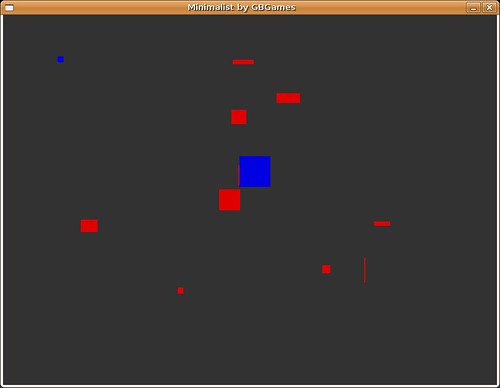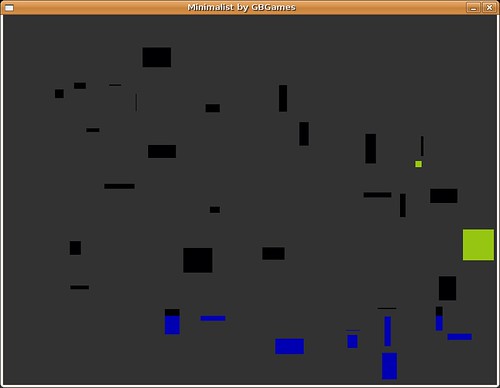Gamasutra has the Sins of a Solar Empire post-mortem up. It’s always a treat to read what goes on behind the scenes at Stardock, a prominent indie developer/publisher, although I’ll admit that I was a bit confused by the writing.
A single unspoken decision made early in the Stardock / Ironclad partnership led to a host of positive results that might seem obvious in hindsight, but were not at all straight forward at the time.
Er…what was that unspoken decision? The What Went Right section lists a number of decisions, and they all sound like they were not only spoken but also written down as a formal agreement. Perhaps it was just a case of bad writing, but luckily all of the important points of the article offer some insight into the development of the game.
As for what went right, I think it can be summed up in two points.
- Stardock and Ironclad worked together as a team rather than have a stereotypical publisher-developer relationship.
- The game was made for the customers.
Stardock and Ironclad worked together on marketing and design. I think that the employees of Ironclad probably felt more invested in their project, especially since they did do much of the up front work on their own.
And as for the paying customer? The game was delayed to make it better. The hardware requirements were brought down to a sane level so that people other than those with the latest hardware could enjoy it. Copy protection was considered more of a hindrance to paying customers than anything else. It isn’t a game in a popular genre like MMO FPS/RTS, so making the game run on more hardware and making it easier for people to play it were really good decisions.
And it has been paying off. Hundreds of thousands of copies have sold, mostly online, in the first few weeks of release. The game is in retail stores now, so I imagine that sales have increased even more now that the game is much more easily available.
As for what went wrong, most of the issues raised deal with technical issues, such as providing lower-quality artificial intelligence or a single-player campaign due to a lack of time. One problem was a feature of the game that was removed due to the feedback coming from beta testers. I wish the post-mortem went into detail on this point. All I know is that the feature was considered “better left untouched”, but there was no information to suggest how they came to this conclusion.
Stardock wasn’t able to finish Impulse, their digital distribution platform. I’m not so sure it is a problem. Many people already have Steam, and Penny Arcade is releasing its game on Greenhouse. Not that I don’t think competition in this space is a good thing, but does everyone need their own platform?
From Stardock’s perspective, the experience on Sins of a Solar Empire cemented its commitment to ensuring that any games it publishes are developed by studios that view game design as an iterative, collaborative process where the strengths of both teams are combined.
So what can an indie game developer learn from the post-mortem?
- Your paying customers matter more than the non-paying non-customers.
As Stardock’s Brad Wardell said on piracy and PC gaming, people who actually buy your games don’t want to deal with the hassles of copy protection. Most of them don’t upgrade their hardware every few weeks. They also appreciate it if you put together a good game, even if it is delayed. If you focus on satisfying the customer, how can you go wrong?
- Do it, then do it better.
Ironclad spent a year working on prototypes to make sure that the game mechanics would work well before starting production in earnest. PopCap’s James Gwetzman also promotes prototype-heavy game development. Create a small prototype that is meant to be thrown away. It is better to learn early on that something isn’t fun or just doesn’t work than after millions of dollars and thousands of man-hours have been sunk into a project.
While Sins of a Solar Empire may be benefiting from a lack of competition from major titles, I am sure that the above two practices, focusing on the customer and iterating the game design, helped create a hit.
One side note: why isn’t there a game demo available? Or rather, why is news of it buried in the forums instead of the front page of the website? I mean, at least provide a link from the front page to let me know that it exists. The Sins of a Solar Empire demo does exist, so why not tell people who aren’t already on your forums?
[tags] post-mortem, video games, indie, game design, marketing [/tags]





